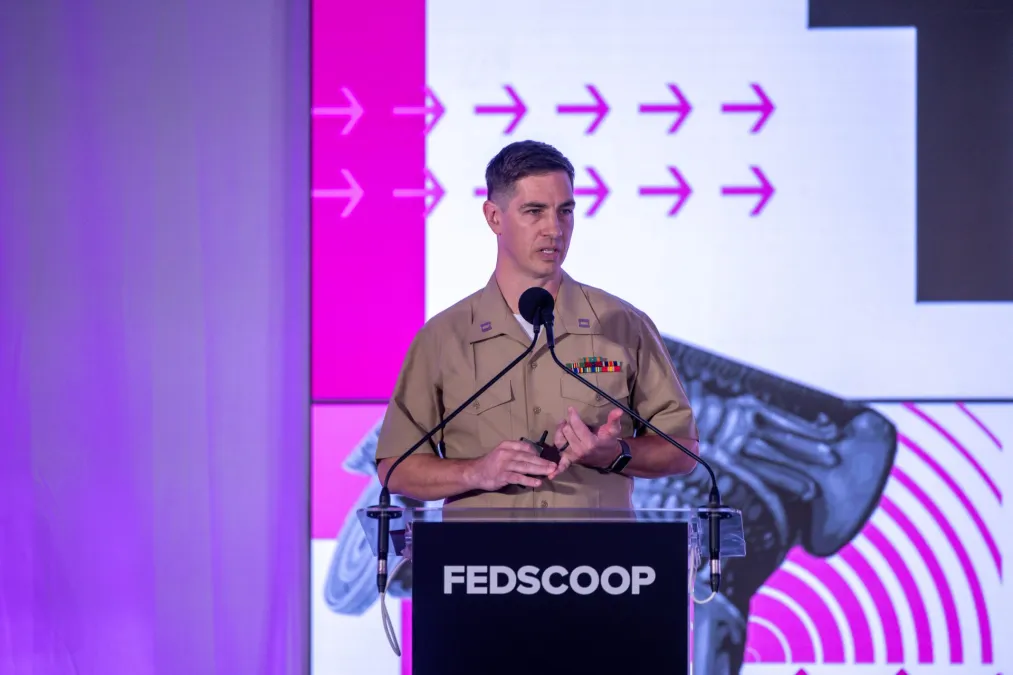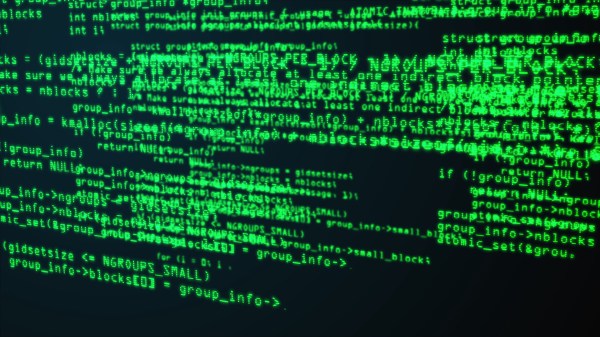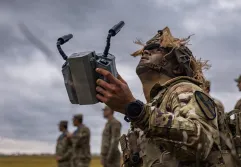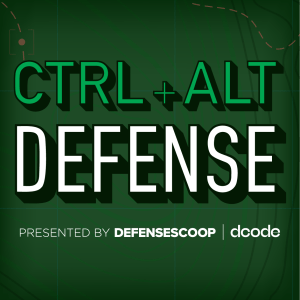How the Marine Corps is moving to upskill its workforce on AI

The Marine Corps is deploying strategic digital transformation teams and getting set to launch a new training effort to instruct and upskill its entire workforce on artificial intelligence and associated emerging technologies, according to a top official involved in those efforts.
Marine Corps AI lead Capt. Christopher Clark provided the latest update on the service’s journey to meaningfully integrate the technology across all levels, from headquarters down to small tactical units, during a keynote presentation at FedScoop’s FedTalks conference on Thursday.
“We’re doing a lot of things and we’re really excited to continue partnering, continue growing, and to build our workforce, so that we can really deploy these capabilities in a way that makes sense — that impacts the Marines — and ultimately makes them more effective, more involved and more able to do their job,” Clark said.
Over the last two years, officials developed a comprehensive AI strategy and implementation plan to guide the service’s full-scale adoption of the rapidly evolving capabilities.
“Since signing this implementation plan, our Training and Education Command immediately stood up a campaign plan to identify what is needed to educate and train the entire Marine Corps in data, AI and disruptive technologies. They’re finalizing that plan now, and as they’re doing that, we’ve also rolled out several other initiatives,” Clark said.
The service partnered with the Air Force, MIT and the Naval Postgraduate School to create new AI fellowship opportunities for Marines. Clark noted that, in November, the Marine Corps is also going to host a five-day workshop in Quantico, where service members, civilians and industry will discuss key operational problems that generative AI can help solve.
As part of its new AI guidance, the Corps is deploying digital transformation teams, or DTTs, to identify use cases for the technology and areas for workflow integration.
“We have one at [II Marine Expeditionary Force], which is in Camp Lejeune, North Carolina; one at Marine Corps Logistics Command in Albany, Georgia; and another at [Marine Forces Pacific/Fleet Marine Force-Pacific], closely partnered with [U.S. Indo-Pacific Command], a strategic partner in the Pacific region,” Clark said.
“These teams are meant to do two things,” he added. “They deliver AI solutions to their command and also integrate back into Headquarters Marine Corps so that we understand — as we develop policies, as we identify the requirements, to be delivered through the capabilities — what those teams need to be successful.”
Though he did not explicitly reference the service’s unfolding pursuits to unleash the AI-powered Maven Smart System for easy access across the force, Clark mentioned that another major, near-term priority involves determining the correct combination of hardware, software and tools needed to build out and manage AI applications.
“Right now, we have some disparate efforts where we can do machine learning — but we don’t have a unified AI infrastructure for the Marine Corps that enables us to connect to the data sources. We need to transform the data and then apply AI, machine learning and generative AI on top of that. And so that is a major effort that we’re getting after, and we’re looking to do that very soon,” he noted. “And then AI governance, like I said, there are a number of policy and compliance requirements we need to ensure that we build systems that are trustworthy, and that the Marines have trust in [when] they know how to use them.”






